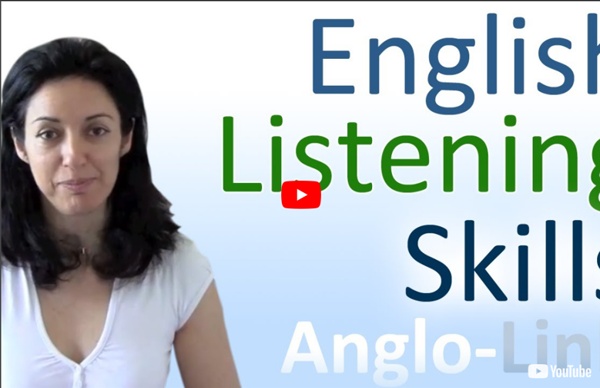



http://www.youtube.com/watch?v=ssuiqtreiBg
Related: INGLESStore - A-F 117: The English Sound System English is one of the richest languages in terms of sound variation. That is why it is sometimes a challenge for non-native speakers of English to understand native-speakers, or to achieve a good pronunciation themselves. This file introduces you to the different sounds in English and the special ways in which native speakers combine sounds in connected speech. It will greatly help your listening comprehension and you own pronunciation. ESL Kids Lessons, English Video Tutorial Lessons for children This website uses cookies to ensure you get the best experience on our website. Learn more Got it!
6 Cara Meningkatkan Kemampuan Listening Bahasa Inggris Seperti halnya kemampuan menulis (writing), membaca (reading), dan berbicara (speaking), kemampuan mendengarkan (listening) sangat penting jika Anda ingin menguasai bahasa Inggris. Beberapa orang mungkin menyarankan Anda untuk mengikuti kursus bahasa Inggris agar kemampuan listening Anda meningkat. Namun, bagaimana kalau Anda tidak punya waktu mengikuti kursus tersebut? Bagaimana kalau Anda tidak punya dana untuk kursus tersebut? Jangan bersedih. Los 12 mejores vídeos de Youtube para aprender inglés Guest Blogger: Garikoitz Amezaga autor del blog La nube del inglés. Internet está repleto de recursos que puedes y que debes utilizar para aprender inglés. Y uno de estos recursos es, nada más y nada menos que Youtube.
Lecturas en ingles traducidas al español. Traducciones de textos ingleses Te ofrecemos otras opciones gratuitas para perfeccionar tu lectura en inglés. Tienes también a tu disposición Ejercicios de Reading (comprensión de lectura) para perfeccionar tu inglés. · En Lector Virtual podrás descargar gratis multitud de libros en inglés de los principales autores de la literatura universal. Son obras completas que puedes leer online o descargar en formato pdf o epub. 25 Cara Kekinian Melatih Listening Skill 25 Cara kekininan Melatih Listening Skill ini adalah kumpulan sharing pengalaman belajar bahasa Inggris saya. Mengapa kita susah memahami jika mendengarkan orang asing berbicara? Mengapa kemampuan listening kita lemah, dibandingkan kemampuan membaca maupun menulis? Atau kita seringkali tidak mengerti dengan apa percakapan bahasa Inggris dari video atau film yang kita tonton?
English Listening Comprehension Exercises - Ejercicios de comprensi n auditiva de ingl s - Para aprender o practicar ingl s This the VOA Special English Agriculture Report. It can be hard to decide which foods to buy in an American grocery these days. The information on many products makes different claims. These labels suggest that the food is safe, pure or kind to animals. The label "organic" guarantees that the United States Department of Agriculture recognizes the product was grown under Secret Tips to Drastically Improve Your English Listening (ESL) – RealLife English I know how you feel. You’ve studied English for a long time, you understand the rules, you can read, write, and even speak. But when you watch TV, listen to podcasts, or find yourself in a group of native speakers, YOU ARE TOTALLY LOST! We speak too fast, we cut words, we use too much slang, and we break nearly all the grammar rules.
What does “Would of” Mean? Don't Make this English Grammar Mistake! - English learning article So, you’re happily going about your English studies and feeling quite happy with the language progress you are making when you get a message from one of your native English speaker contacts that goes something like this: “Sorry. I would of spoken to you yesterday if I hadn’t been busy”. 5 Strategies to improve English Listening skills - 5 Strategies to improve English Listening skills Frustrated of not been able to understand naïve English speakers in real conversations? Do you find native English speakers too fast when they speak? Or are native English accents hard for you to pick up? Or is the English slang and idioms used by native English speakers too confusing?
How to Really Improve Your English Listening Skills Do you have these annoying problems? You find it very difficult to improve your English listening.You don’t have time to improve your listening.Your listening has stayed at the same level for a long time (even though you listen to English regularly). If you have these problems, keep reading. Let’s get started. Why Most People Fail to Improve Their English Listening Skills